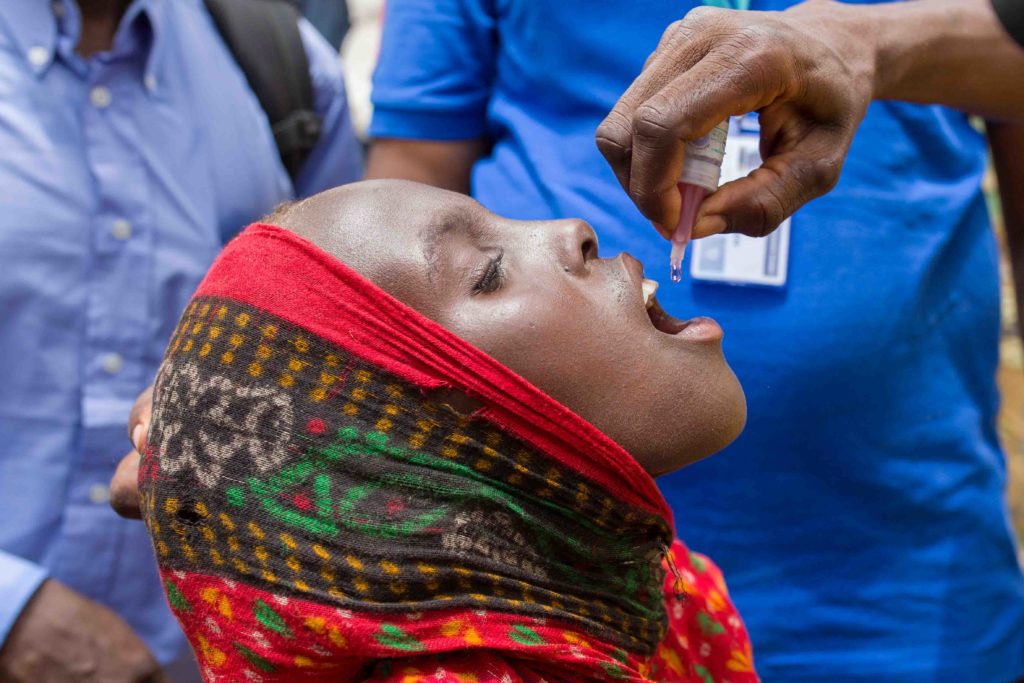
A girl receives two drops of oral polio vaccine during market day on the island of Ngorerom on Lake Chad.
Earlier this summer, a team of health workers traveled by boat, bike, and foot to reach Ngorerom Island, one of the hundreds of islands dotting Lake Chad, a freshwater lake located at the intersection of Niger, Chad, Cameroon, and Nigeria. In recent decades, the Lake Chad islands have suffered terribly from the effects of climate change, as drought and famine have spread across the region. And in 2009, Boko Haram launched its violent insurgency in Northern Nigeria, bringing terror and greater insecurity to the Lake Chad Basin. As a result, the people of the Lake Chad islands are at increased risk of health crises and are some of the most difficult populations to reach with basic health services.
But in the global effort to eradicate polio, every child must be vaccinated against the disease. Under the leadership of the Global Polio Eradication Initiative (GPEI), satellite imaging was used to plot all human settlements on the Lake Chad islands. Health workers then made difficult and sometimes dangerous journeys to these islands to deliver the Oral Polio Vaccine (OPV) to all children under the age of ten. Between February and June 2018, the number of island settlements reached by polio task teams doubled.
The effort to vaccinate the children of the Lake Chad islands demonstrates GPEI’s unique capacity to deliver health services to some of the hardest-to-reach and most insecure areas of the world. In this way and others, the global effort to eradicate polio has not just brought us closer to one of the greatest public health accomplishments in human history, it has also improved global health security.
In the process of eliminating polio, countries have strengthened their capacity to corner viruses and quickly respond to outbreaks – lessons that can be applied to any pandemic response. To eliminate polio, countries have built surveillance systems to track the disease and target it effectively. Several countries have established emergency operation centers (EOCs), capable of rapidly deploying teams to stop the spread of the disease. And polio programs have facilitated community engagement, building greater trust between communities and health officials.
In Nigeria, the polio program’s infrastructure has already been leveraged during another public health crisis. In 2014, when Ebola cases were detected in Lagos, the EOC it had established for polio in 2012 proved critical in responding to and controlling the outbreak. The EOC helped to avert a potential catastrophe by containing the outbreak in Lagos, a megacity with a population of 17.5 million.
Today, the pandemic threat looms large, as climate change, population growth, and globalization facilitate the evolution and spread of infectious diseases. But even in the Lake Chad Basin, where these factors are felt most acutely, the polio program has had success in vaccinating children and preventing the spread of the disease. Over the past three decades, GPEI has helped to strengthen state and regional capacity to prevent, detect, and respond to disease threats, including in some of the most challenging and vulnerable regions of the world. It is critical that we continue to support countries to finish the job on polio – the world will be safer because of it.
To learn more about the global effort to eradicate polio, click here.
Photo Credit: Christine McNab for the UN Foundation
